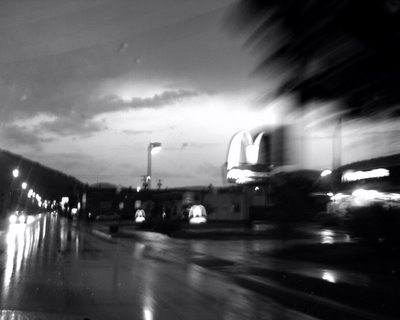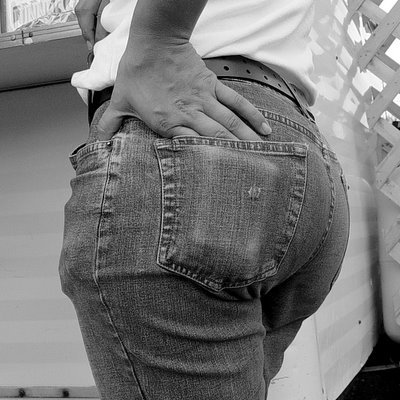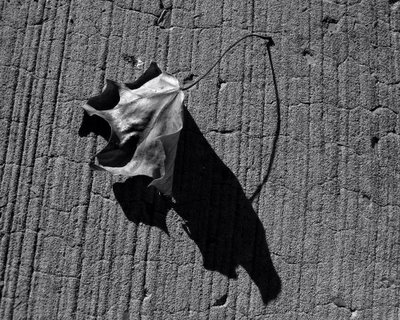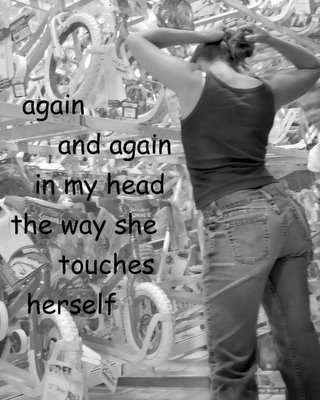Friday, September 30, 2005
Thursday, September 29, 2005
Wednesday, September 28, 2005
Tuesday, September 27, 2005
Monday, September 26, 2005
Wabi definition
"the twin brother to sabi . . . can be defined as poverty . . . beauty judged to be the result of living simply . . . austere beauty and poignancy."
Haiku Techniques. Jane Reichold.
Haiku Techniques. Jane Reichold.
Sunday, September 25, 2005
Saturday, September 24, 2005
Friday, September 23, 2005
More on Sabi
"Yoshida Kenko (1283-1350), a court poet who took Buddhist vows in his later years . . . a medieval man who possessed both a fine sensitivity for the poignancy of life and the perishability of all things and a profound nostalgia for the customs and ways of the past. . . . Many of Kenko's preferences--for the asymmetrical instead of the regular, for the subtly suggestive rather than the boldly asserted--can be traced to much earlier times in the development of Japanese culture. But one important criterion of his aesthetic taste, expressed most concisely in the term sabi (aged or antique), was distinctly a product of the medieval era. . . . the medieval Japanese developed a strong liking also for things that showed signs of wear and decay, for the withered, the rusted, the broken, and imperfect."
--Japanese Culture by H. Paul Varley.
--Japanese Culture by H. Paul Varley.
Thursday, September 22, 2005
Wednesday, September 21, 2005
sabi definition
Sabi : a sad beauty, melancholy evoked by the passage of time, nostalgia, an aloneness but at the same time a recognition that we are all tied together. For further definitions see: http://members.tripod.com/~Startag/Sabi.html ; http://www.niwa.org/Sabi.html ; and http://www.hermitary.com/house/aesthetics.html .
Tuesday, September 20, 2005
Monday, September 19, 2005
haiku is not a poem . . .
a haiku is not a poem, it is not literature;
it is a hand beckoning, a door half opened,
a mirror wiped clean.
--r.h. blythe
it is a hand beckoning, a door half opened,
a mirror wiped clean.
--r.h. blythe







